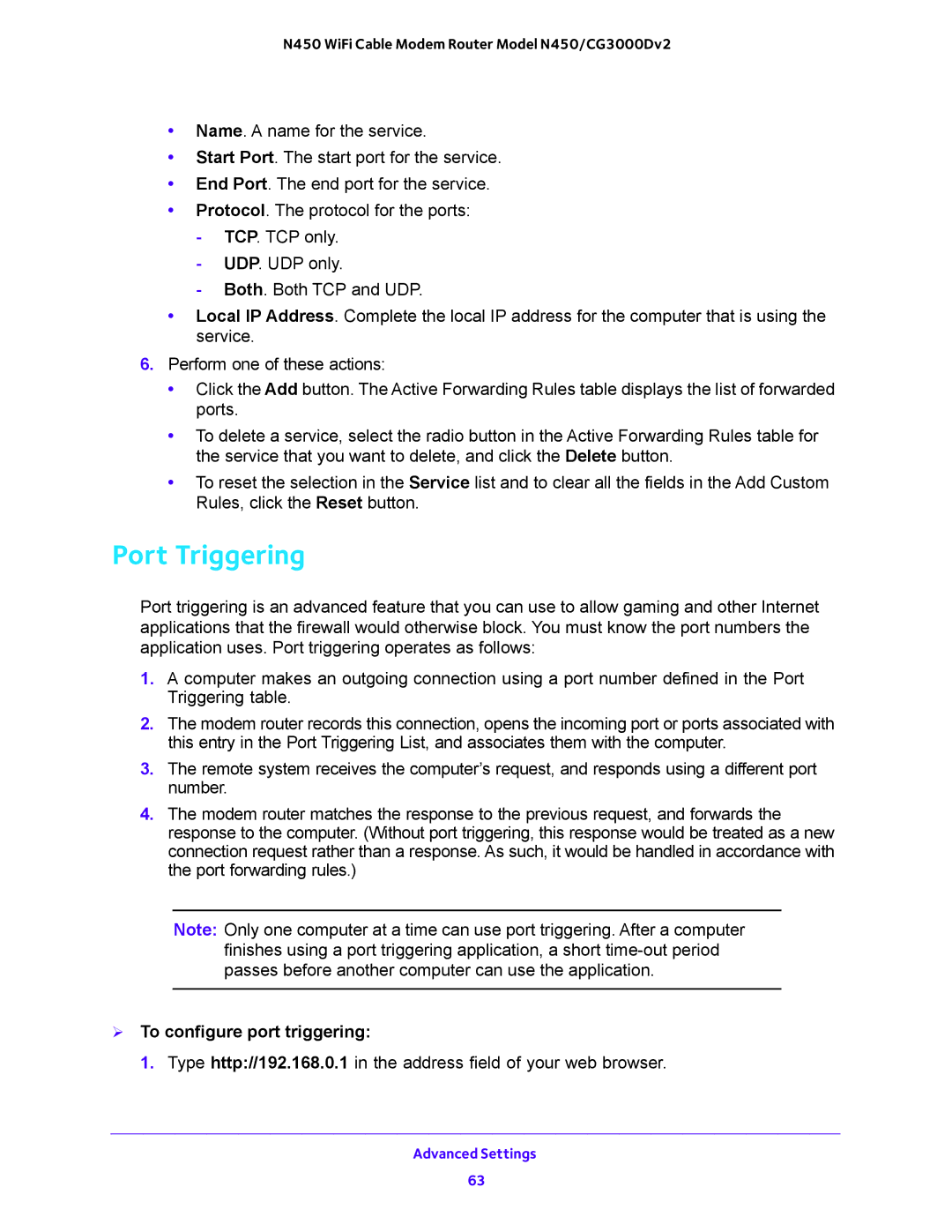
N450 WiFi Cable Modem Router Model N450/CG3000Dv2
•Name. A name for the service.
•Start Port. The start port for the service.
•End Port. The end port for the service.
•Protocol. The protocol for the ports:
-TCP. TCP only.
-UDP. UDP only.
-Both. Both TCP and UDP.
•Local IP Address. Complete the local IP address for the computer that is using the service.
6.Perform one of these actions:
•Click the Add button. The Active Forwarding Rules table displays the list of forwarded ports.
•To delete a service, select the radio button in the Active Forwarding Rules table for the service that you want to delete, and click the Delete button.
•To reset the selection in the Service list and to clear all the fields in the Add Custom Rules, click the Reset button.
Port Triggering
Port triggering is an advanced feature that you can use to allow gaming and other Internet applications that the firewall would otherwise block. You must know the port numbers the application uses. Port triggering operates as follows:
1.A computer makes an outgoing connection using a port number defined in the Port Triggering table.
2.The modem router records this connection, opens the incoming port or ports associated with this entry in the Port Triggering List, and associates them with the computer.
3.The remote system receives the computer’s request, and responds using a different port number.
4.The modem router matches the response to the previous request, and forwards the response to the computer. (Without port triggering, this response would be treated as a new connection request rather than a response. As such, it would be handled in accordance with the port forwarding rules.)
Note: Only one computer at a time can use port triggering. After a computer finishes using a port triggering application, a short
To configure port triggering:
1. Type http://192.168.0.1 in the address field of your web browser.
Advanced Settings
63
